EduBrite allows you to use externally created SCORM 1.2 and 2004 content in your courses easily. You can add one or more SCORM in your courses, add optionally add additional quizzes and other lessons with downloadable content. You can also provide a course completion certificate automatically once the user completes the course. EduBrite allows you to deliver the course as a course session by scheduling it and enrolling learners for each course session. You can not only track complete-incomplete / pass-fail status, but also the time, scores and detailed question wise outcomes (interactions) for the SCORM.
Let's look at some examples of how to bring the SCORM content and package them as courses for delivery.
Adding SCORM in course
A SCORM can be added directly in the top-level inside a course, or inside a module or topic. To add SCORM, select the course or a module or topic from the course outline in the editor.
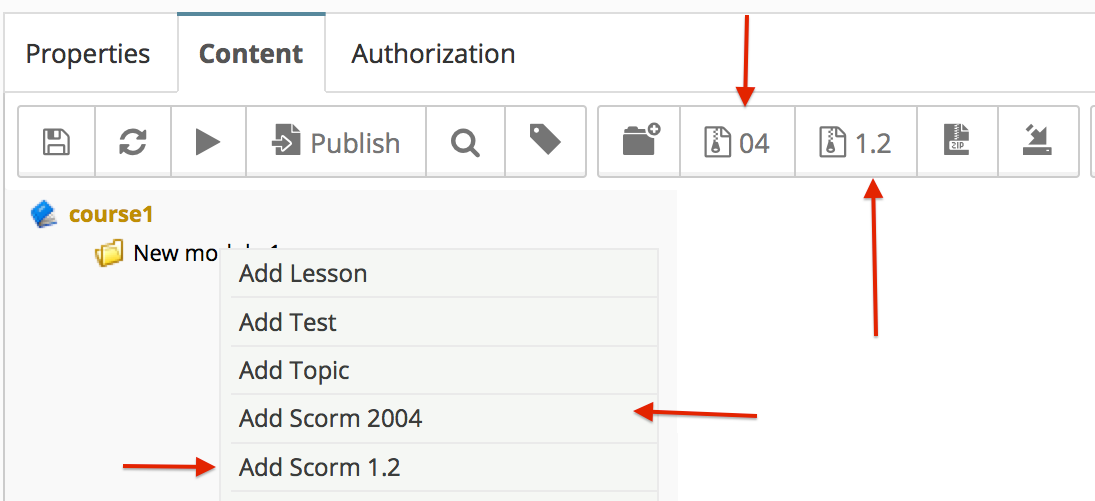
Then you can use one of the toolbar buttons or right-click the container and select Add SCORM 1.2 (most commonly used) or Add SCORM 2004 menu options from the dropdown.
On the next step, you can enter the name of the SCORM module and modify its properties (this can be done later also). Read more about specific properties here
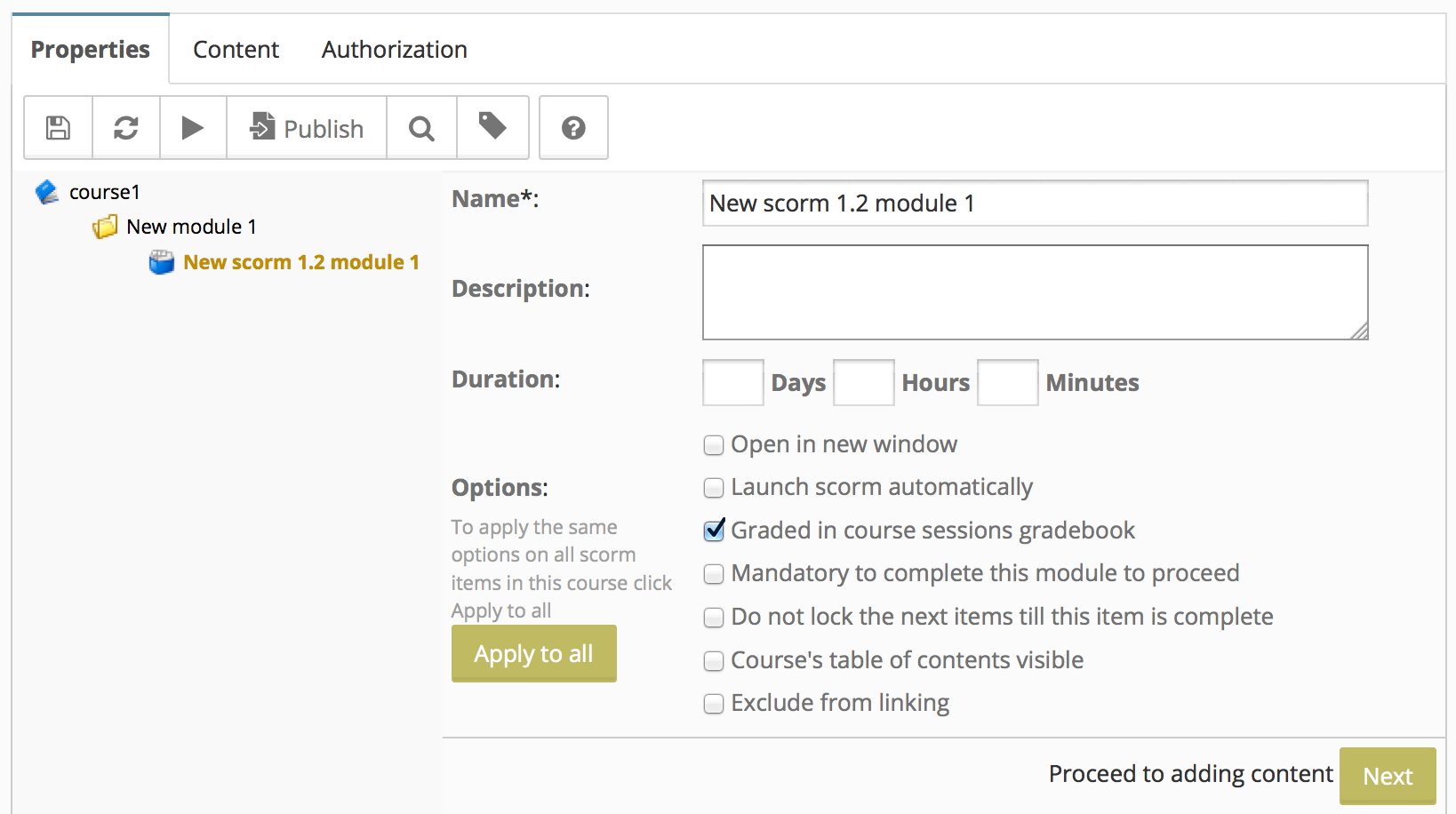
After that, click on the Next button and then select a published SCORM zip file for upload, or just drag and drop the SCORM zip file into the content region of the editor (you will notice the content region background will change to light yellow when you drag a file over it). You can also link to an existing SCORM in another course you have already created. Upload of the zip file can also be done from Dropbox.

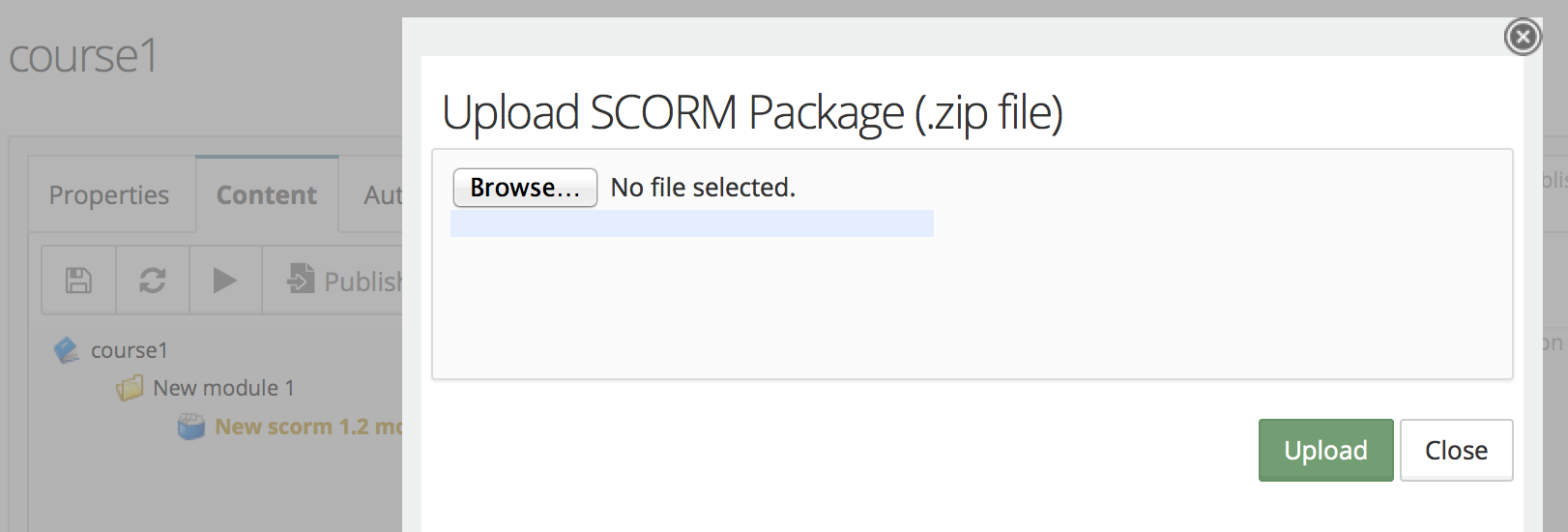
Once the file is uploaded and if it is a valid SCORM file, you will be able to see its metadata in the Info tab and the version tab shows the SCORM version history (when and who had modified SCORM module).
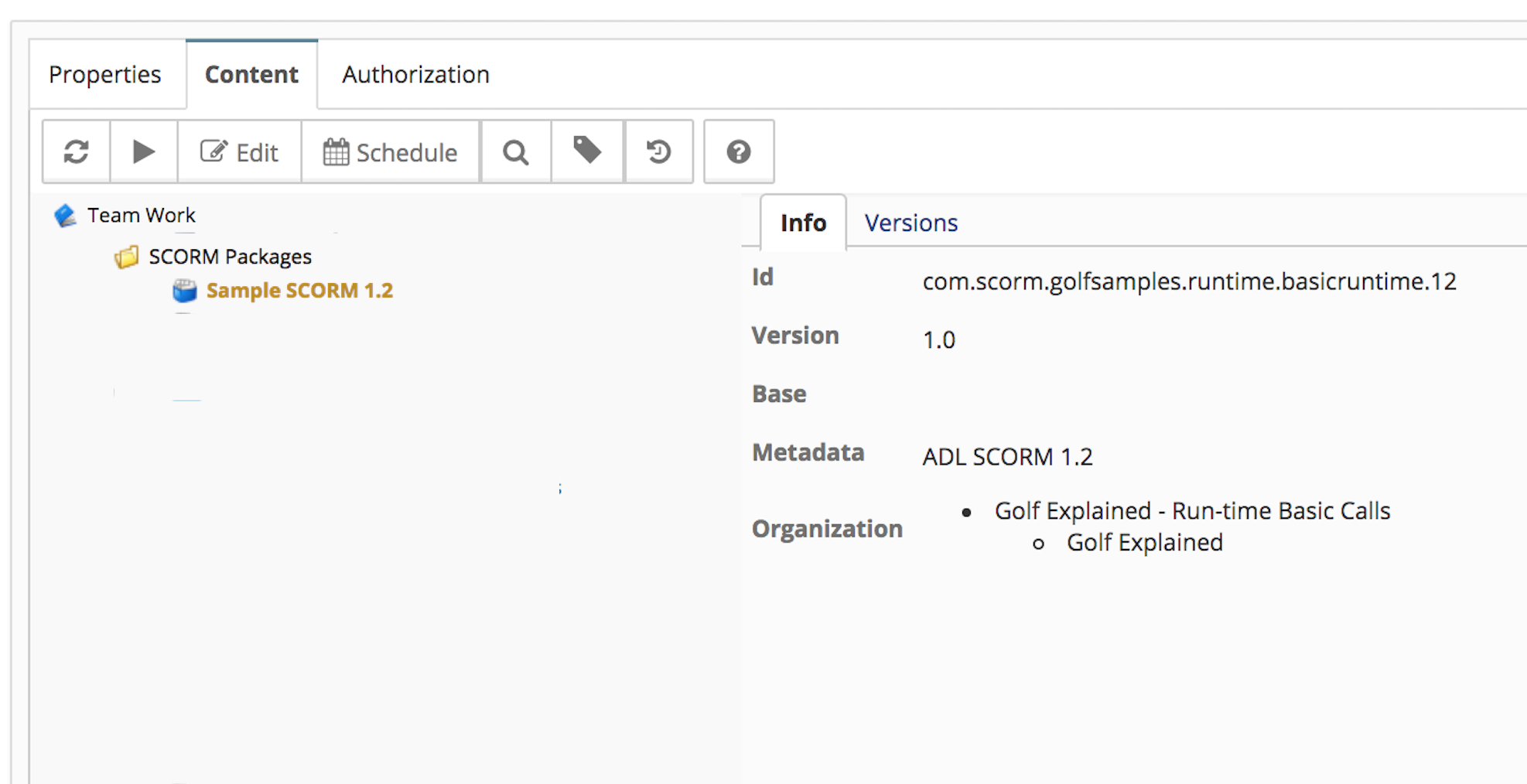
Note:
1. If you already have an existing course session, you will not see the new SCORM in that session until you publish the course from the editor.
2. To update the SCORM zip file, do not delete the SCORM module from the course, rather just select the SCORM module in outline in the editor, and drag and drop the new file.
Caution while updating SCORM:
When you update a SCORM module by uploading a new zip file, make sure the IDs contained inside the SCORM imsmanifest.xml file are not changed. Otherwise, any learners who were in progress or have already completed the SCORM would get an error while looking at their transcripts or while re-launching the SCORM. This happens because run time data already stored in LMS corresponds to an older ID which no longer can be found in the new zip file.
E.g. check the screenshot below, which circles the two ids you should not change, when creating a new package that you want to use to replace an existing package in LMS.
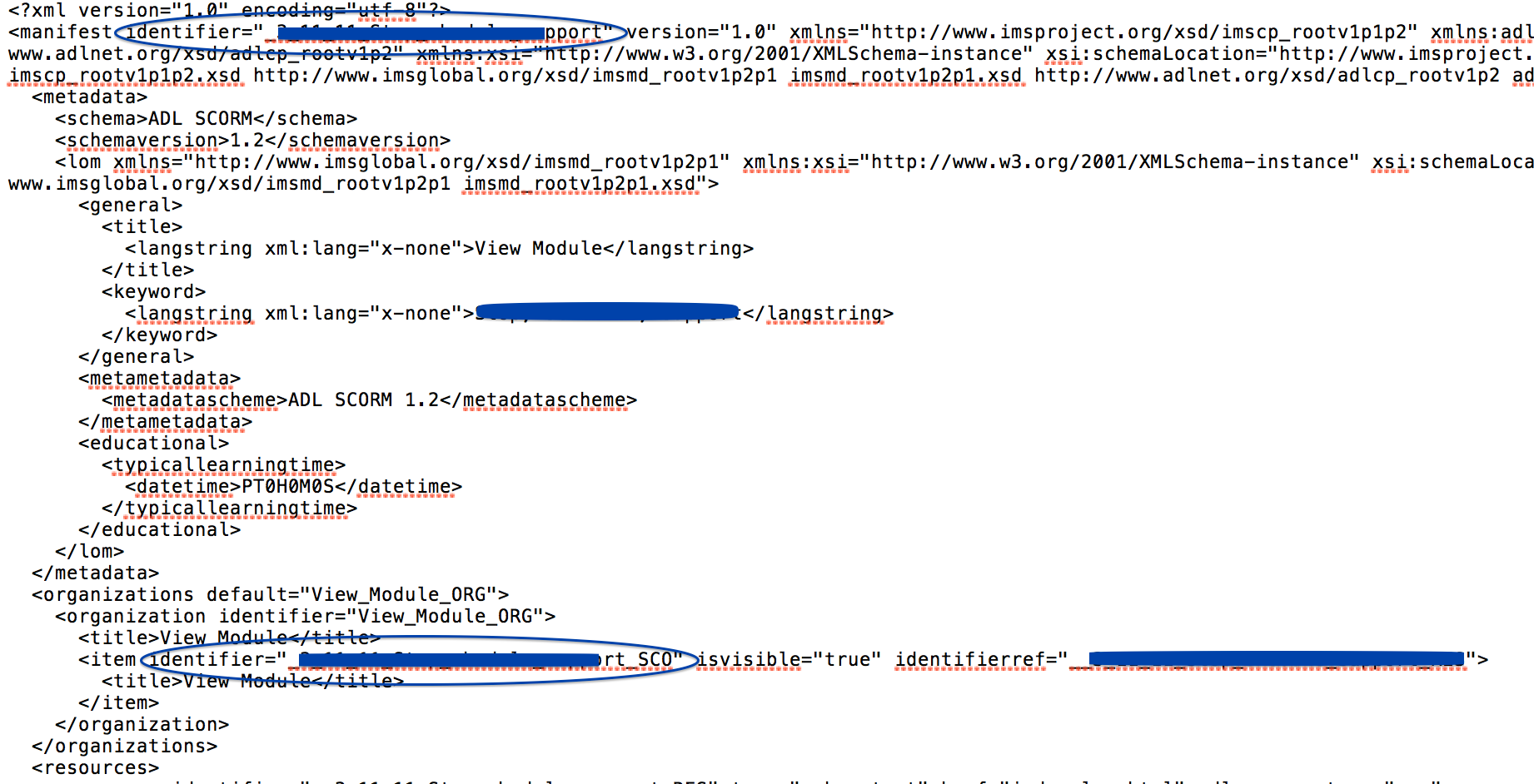
If you absolutely need to change the IDs, then after uploading the new package, while you are in the editor, create the following URL manually. Construct the URL by changing the site URL and course ID with your own site and course ID.
http://mysite.edubrite.com/oltpublish/site/courseEditor.do?dispatch=fixScormId&courseId=aaaaaaaa-aaaa-aaaa
The above command fixes existing records (runtime data) by changing the stored ID with the new ID available in the zip file that is presently uploaded.
Single SCORM module in the course
You can have a course that only has a SCORM module in it. Make sure to make it mandatory, if you want to accomplish the auto award of certificate.
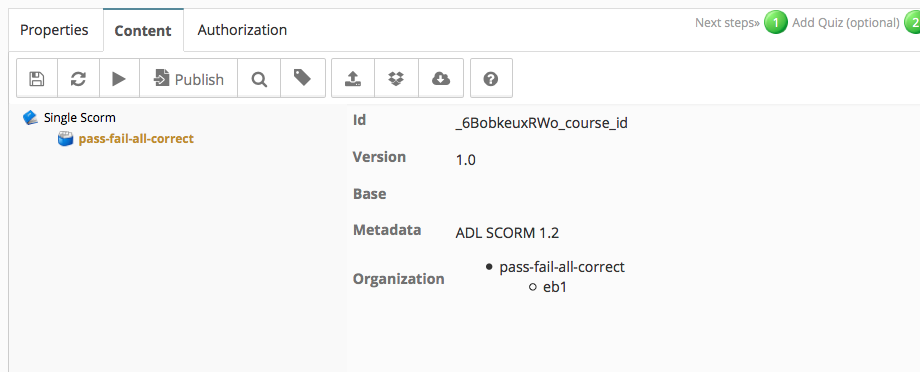
Multiple SCORM modules
You can add multiple SCORM modules in the course easily. When you create a course session and learners who are enrolled in it go through the course, their progress and completion status in each module is tracked.
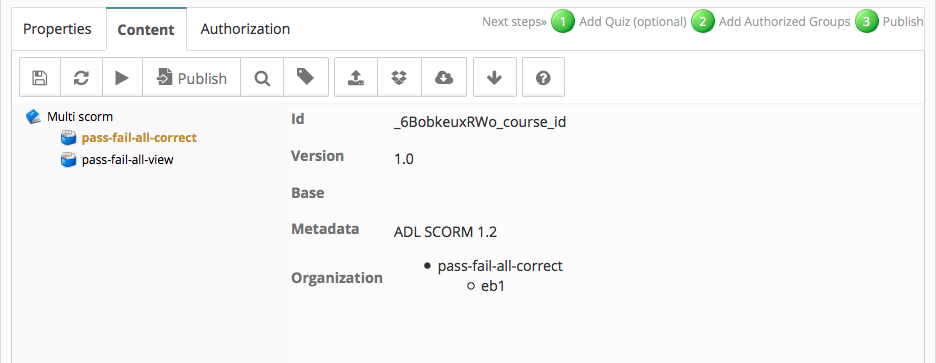
Progress and status in each SCORM are tracked and are used to determine the overall completion status of the learner.
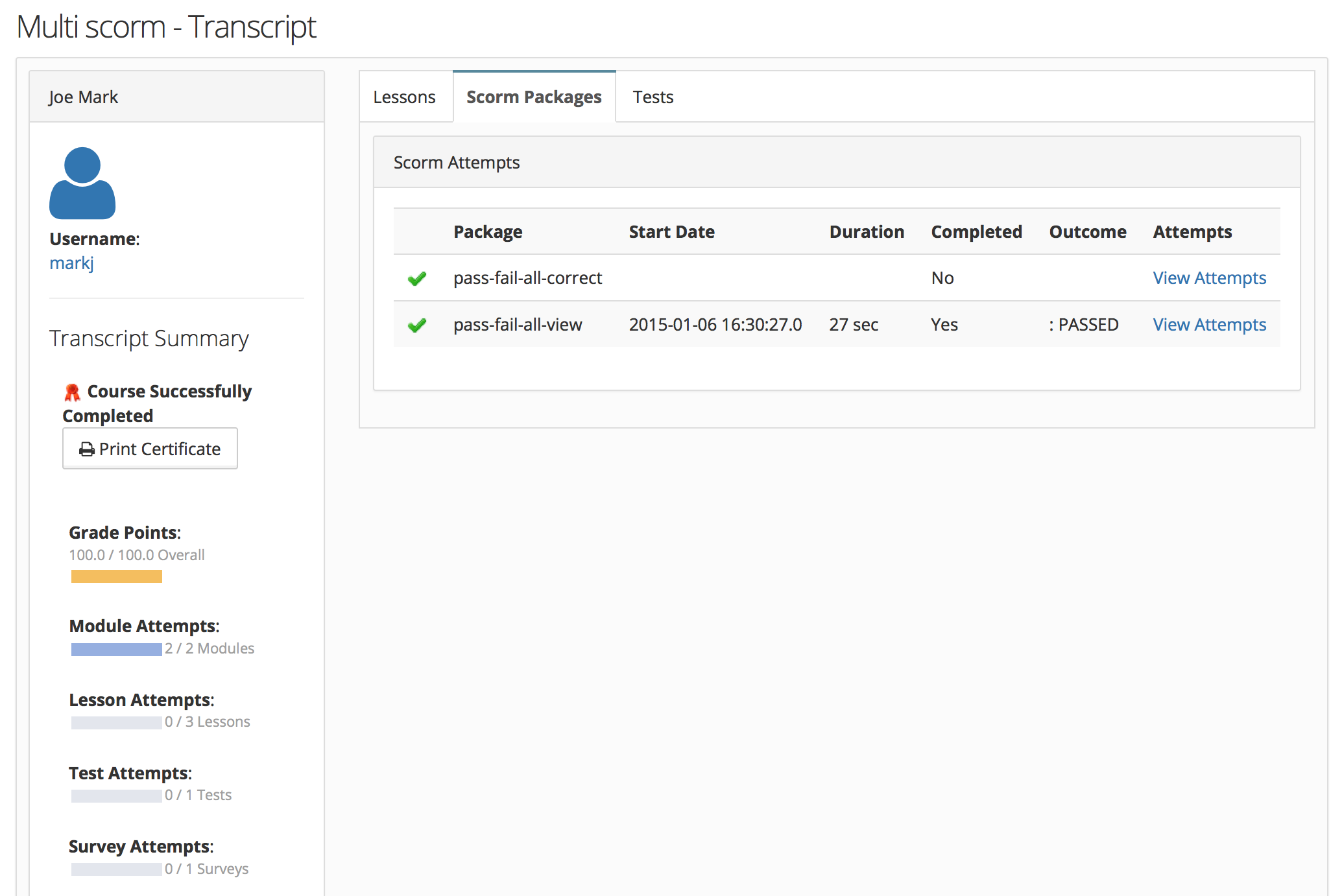
SCORM and Quiz created in EduBrite
You can also create additional quizzes in the native test editor and add them to the courses instead of embedding them in the SCORM modules. These quizzes can be made mandatory, so the user must pass them in order to complete the course.
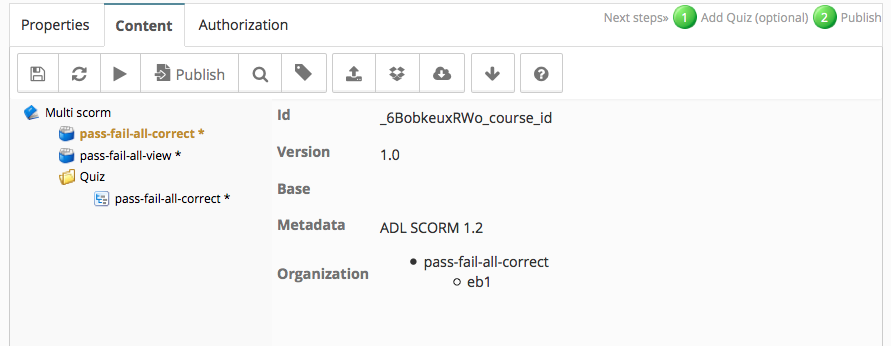
Multiple modules with SCORM, Additional Resources, and Quiz
You can easily create a hierarchical structure in the course to organize your SCORM modules along with any additional content you may want to provide to learners. These resources may include viewable content (in the course player) as well as downloadable files. Read more about providing downloadable files here
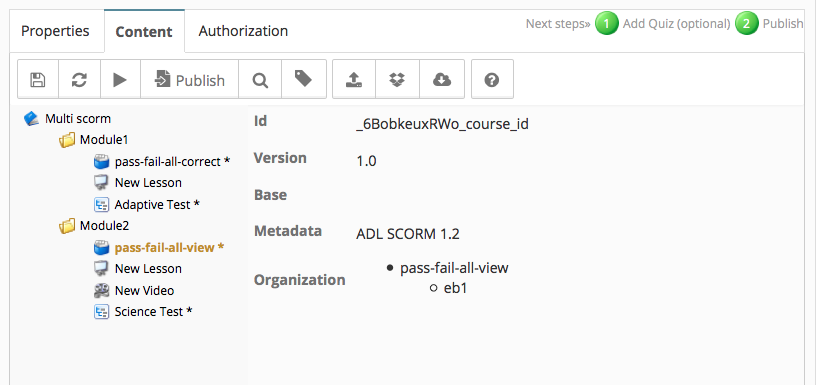
Completion Certificate
In the course, you can provide automatic generation of course completion certificate, which is provided to the learner when they finish all SCORM modules and other mandatory items in the course.
Scheduling for Blended / Instructor Led Delivery
You can also set availability dates for each SCORM module in the course and enforce end dates so learners can access specific modules according to a pre-set schedule.
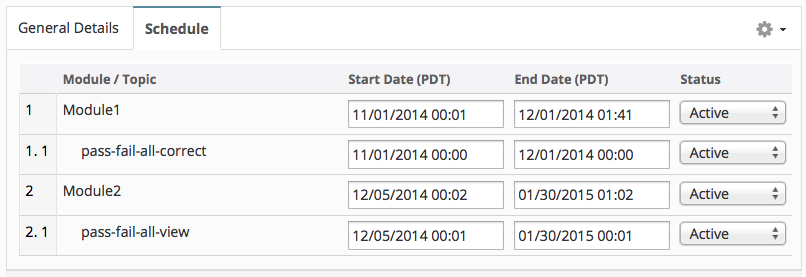
Reattempts
EduBrite permits re-attempts on SCORM modules for all delivery inside the course session. Also, all attempts by the learner in a course session on a given SCORM module are tracked using the same attempt-ID. In case your module had quizzes and it sends the interaction data (question wise attempt details) to LMS, all interactions on all questions would be stored and reported, including ones from the re-attempted questions.
Compatibility
EduBrite platform supports SCORM 1.2 and 2004 (3rd edition) packaging and Runtime specs (EduBrite doesn't yet support sequencing control, which is part of SCORM 2004 4th edition spec).

